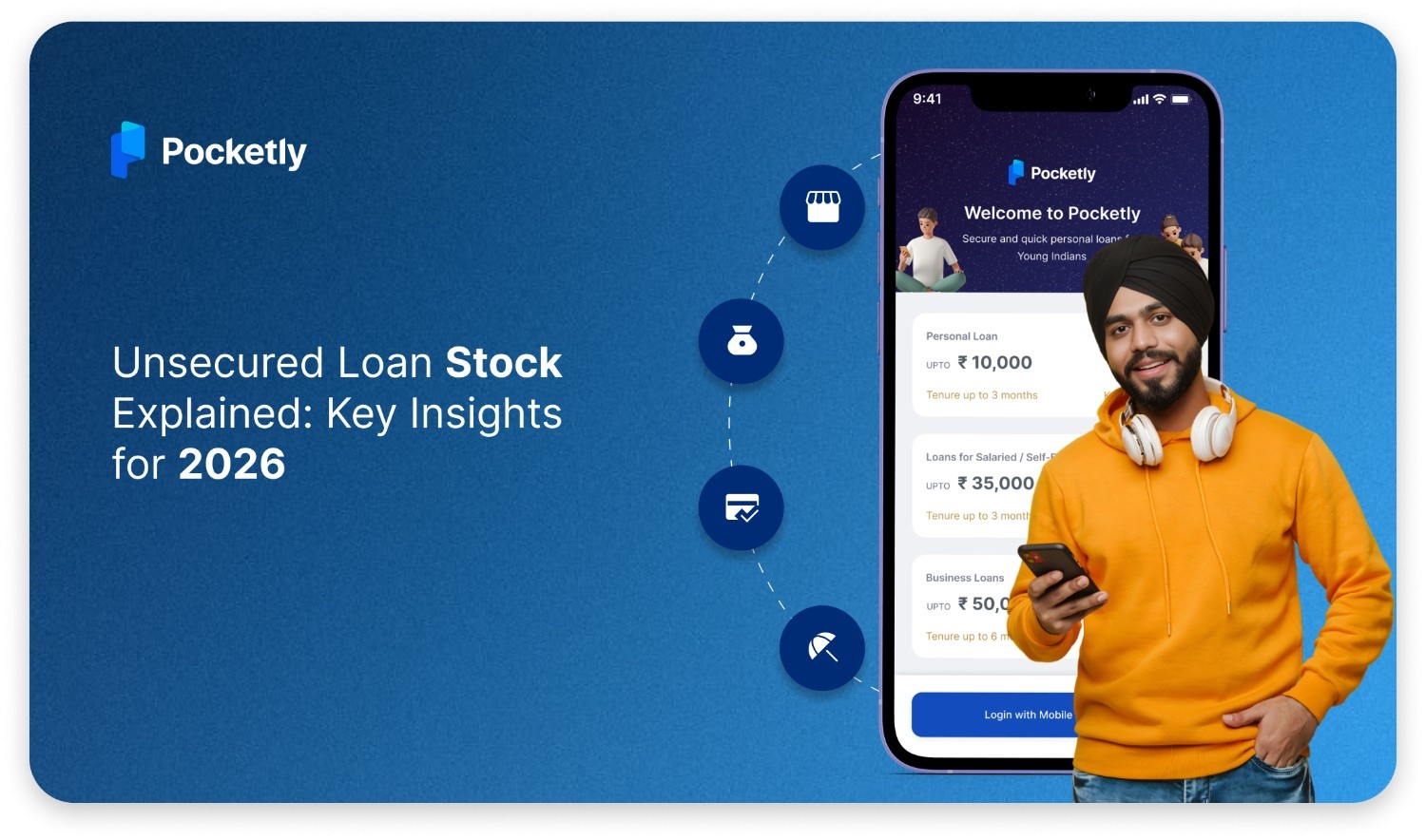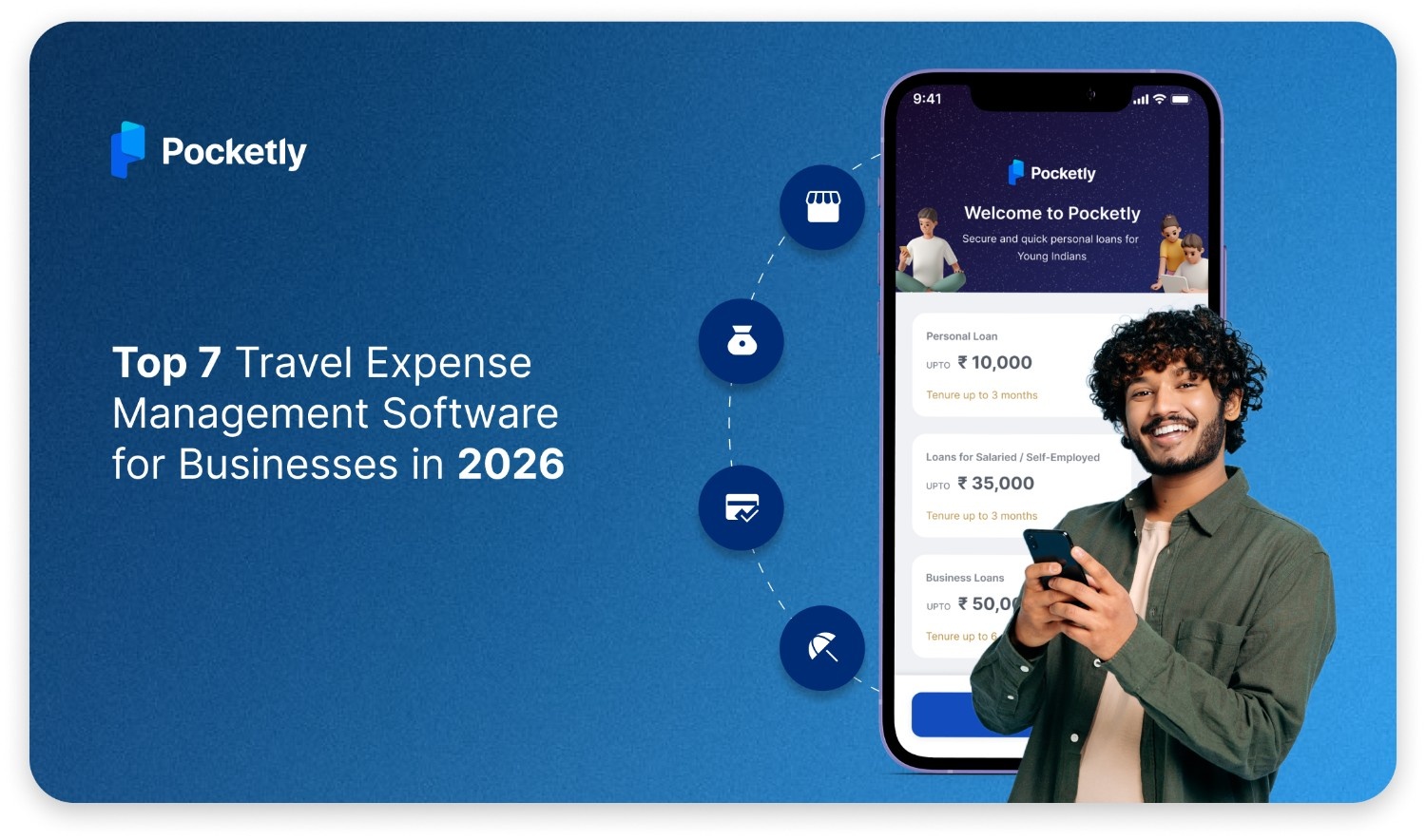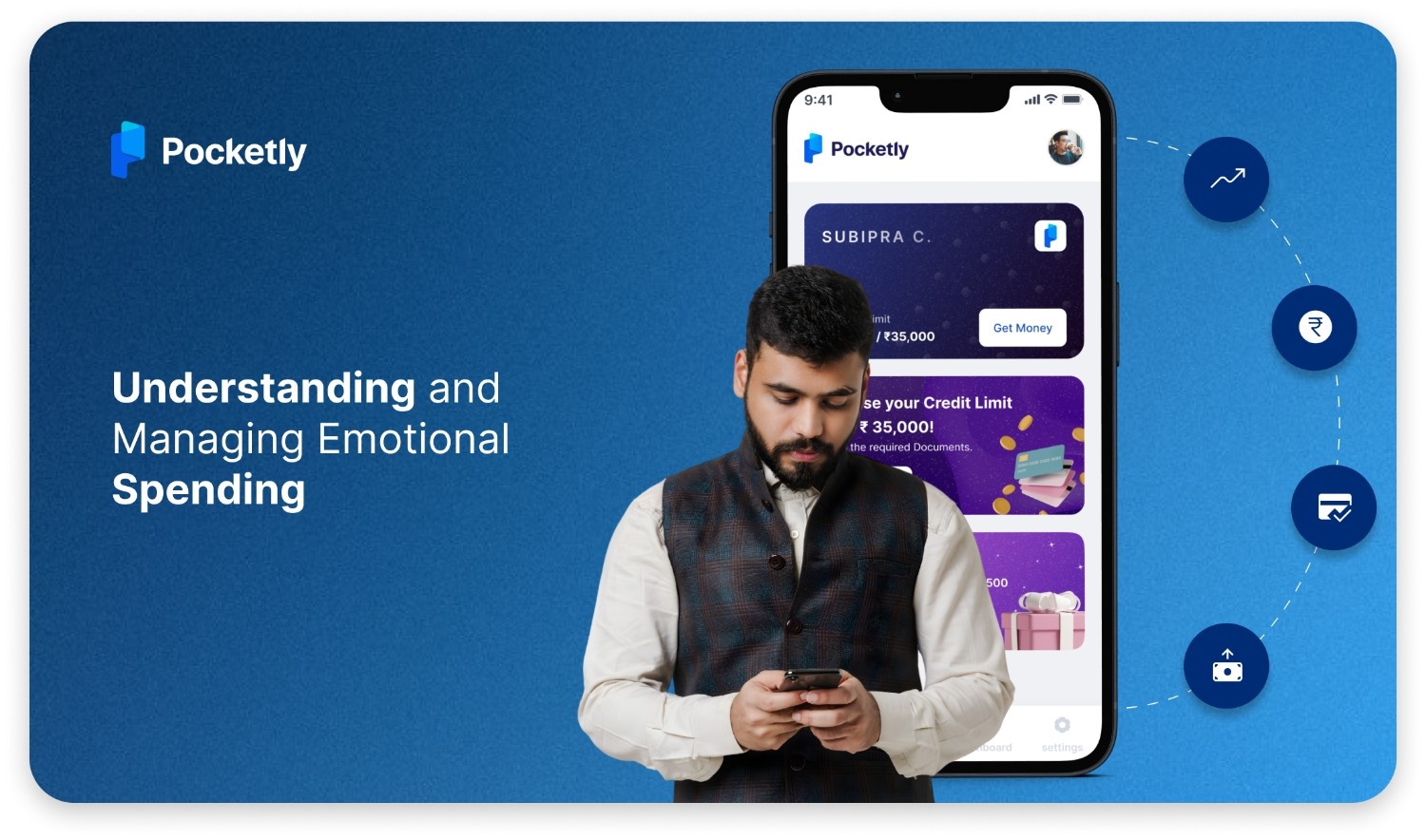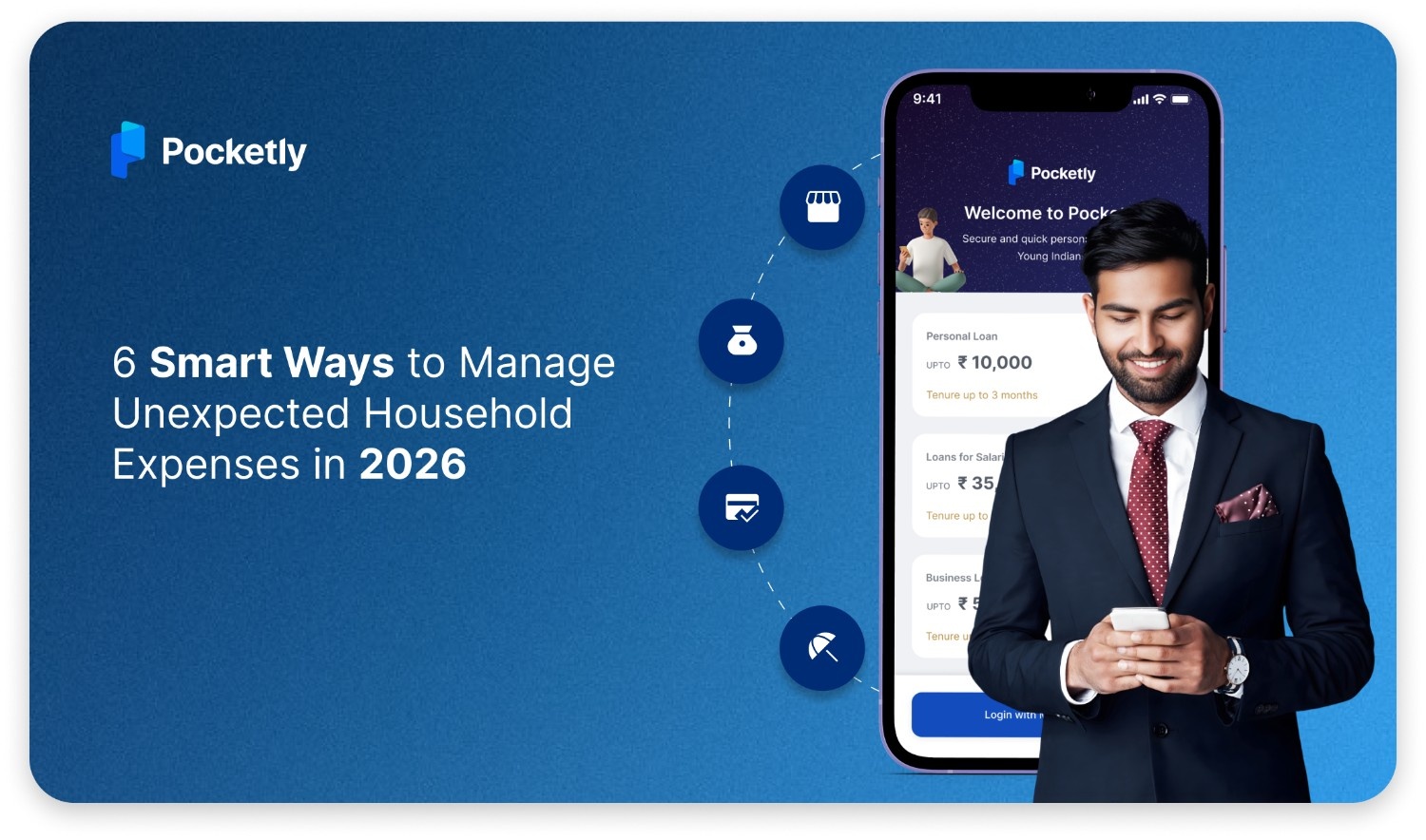If you've checked your credit score in India, you've likely come across two leading names—Experian and CIBIL (now TransUnion CIBIL). Both provide credit scores, but you might notice some differences between the scores they report. So, what’s the deal? Why don’t these numbers always match up?
Knowing the differences between Experian and CIBIL scores can give you a clearer picture of your financial health, especially when you’re planning to apply for loans or credit cards. Each score is calculated based on unique data sources and methodologies, which can impact how lenders view your creditworthiness. Understanding these differences helps you take better control of your financial future.
This guide will break down the critical distinctions between Experian and CIBIL, from how they collect data to how they calculate scores and what each score can tell you about your financial standing.
What Are Experian and CIBIL?
When it comes to keeping an eye on your credit score in India, two prominent names pop up—Experian and CIBIL (officially known as TransUnion CIBIL). Both are credit bureaus, which means they gather information about your financial activity, like how you handle credit cards and loans, and turn that into a score that can be used to assess your creditworthiness. But what exactly are these two organisations, and how do they differ?
- Experian is a global credit reporting agency operating in over 40 countries. Known for its extensive data collection, Experian pulls data from various sources, such as banks, credit card companies, and public records, to provide a score that reflects your credit health. It’s widely used internationally and follows global credit reporting standards, making it a familiar name across countries.
- CIBIL, or TransUnion CIBIL, is India’s very own credit bureau. As the first credit bureau established in India, it’s the most widely recognised name in the Indian financial market. CIBIL works closely with Indian banks and financial institutions to generate a credit score that’s tailored specifically to the Indian lending landscape. For many, it’s the primary source of credit scores used in India, making it a go-to for both lenders and borrowers.
Each of these bureaus plays a key role in helping lenders understand your creditworthiness. Still, they use different methods, data sources, and even scoring models, which can lead to slight variations in your scores.
Differences Between CIBIL and Experian
Here, we’ll break down why there can be differences between your Experian and CIBIL scores. Let’s look at the key factors that set these two credit bureaus apart.
Data Collection and Sources
Overview: Experian and CIBIL gather data from different sources, impacting the comprehensiveness of each credit score. While Experian pulls data from a more comprehensive array of sources, CIBIL’s focus remains more specific to Indian financial institutions.
Key Points:
- Experian: Collects data from various sources, including banks, credit card companies, rental histories, and public records. This broad data scope allows Experian to provide a well-rounded view of a consumer’s credit behaviour.
- CIBIL: Primarily relies on data from its network of member institutions in India, like banks and financial companies. This more targeted data collection reflects Indian credit habits but may offer a narrower perspective.
Scoring Models and Methodologies
Overview: Both bureaus use different scoring models to assess credit, which can result in slight variations between Experian and CIBIL scores. Experian’s model has global applicability, while CIBIL’s is more tailored to India’s financial landscape.
Scoring Models:
- Experian’s Model: Uses the globally recognised FICO model, which evaluates factors such as payment history, total debt, and credit types. This model provides a consistent score that is widely understood internationally.
- CIBIL’s Model: Employs a proprietary scoring model specifically designed for the Indian market, taking into account local lending patterns and economic factors. This approach aligns closely with how Indian lenders assess creditworthiness.
Weightage of Factors in Score Calculation
Overview: Both Experian and CIBIL evaluate similar factors in calculating credit scores, but they prioritise these factors differently, which can lead to slight variations in scores.
Factor Emphasis:
- Experian: Places strong emphasis on payment history and a broad mix of credit data, including various account types and credit history. This approach results in a balanced score that reflects diverse financial activities.
- CIBIL: Prioritises credit utilisation (the amount of credit used compared to what’s available) and payment history. High credit utilisation can significantly impact the CIBIL score, as it signals potential risk to Indian lenders.
Credit Score Ranges and Definitions
Overview: Both Experian and CIBIL use a credit scoring range from 300 to 900, with higher scores reflecting stronger creditworthiness. Understanding where your score falls within this range can give you insight into how lenders might view your financial reliability.
Key Points:
- Score Range: Both Experian and CIBIL scores range from 300 to 900.
- Excellent Scores (750-900): Scores in this range are typically viewed as excellent, indicating strong financial responsibility. This range usually qualifies you for better loan terms and lower interest rates.
- Moderate Scores (650-749): Scores here are considered fair to good. You may still be approved for loans, though possibly at higher rates.
- Low Scores (Below 650): A score under 650 often signals higher credit risk, making it more challenging to obtain credit or loans on favourable terms.
Addressing Credit Score Discrepancies
Overview: It’s not unusual to see slight differences between your Experian and CIBIL scores due to differences in data sources and scoring models. If these discrepancies seem significant, it’s a good idea to investigate and resolve them.
Steps to Handle Discrepancies:
- Review Both Reports: Start by comparing credit reports from both Experian and CIBIL. Look for any mismatches, like missed payments or unfamiliar accounts.
- Dispute Errors: Each bureau has a formal process for disputing inaccuracies. Contact the relevant bureau directly, providing any documentation needed to support your claim.
- Follow-up: Stay engaged with the process, as resolving discrepancies can sometimes take a few weeks.
Importance of Monitoring Credit Scores
Overview: Regularly checking your Experian and CIBIL scores is very important for a healthy financial profile. Monitoring helps you catch errors early, stay on top of your credit status, and be prepared when applying for credit or loans.
Benefits of Regular Monitoring:
- Ensure Accuracy: Regular checks help you catch inaccuracies or outdated information that might impact your score.
- Stay Informed: By understanding both scores, you’ll have a clear view of how lenders might perceive you, allowing you to make informed financial decisions.
- Track Financial Health: Monitoring changes in your scores over time gives you a sense of your overall financial health and shows where you can improve.
Staying aware of your credit scores with Experian and CIBIL empowers you to keep your financial plans on track and avoid surprises when seeking credit.
Here’s a summary of Experian and CIBIL:
| Feature | Experian | CIBIL |
|---|---|---|
| Scope | Global presence in over 40 countries | Primarily operates within India |
| Data Collection Sources | Broad data sources, including banks, credit cards, and public records | Relies heavily on member institutions like banks in India |
| Scoring Model | It uses the FICO model, a globally recognised | Proprietary model tailored to Indian financial practices |
| Score Range | 300-900, with higher scores indicating better creditworthiness | 300-900, following a similar range |
| Focus in Scoring | Emphasises payment history and diverse credit data | Emphasises credit utilisation and payment history |
| Popular Use | Widely used internationally and increasingly in India | Predominantly used in India, it is highly trusted by local lenders |
Understanding these distinctions helps you make informed decisions about credit and how lenders may perceive your financial behaviour
Suggested read: Importance and Advantages of Credit Ratings
Ways to Improve Your Credit Score
Improving your credit score with both Experian and CIBIL involves consistent financial habits that demonstrate reliability to lenders. Small actions, like timely payments and managing credit utilisation, can gradually boost your score and improve your creditworthiness.
Key Strategies:
Make Timely Payments:
Paying bills and loan EMIs on time is one of the most impactful steps. Late or missed payments lower your score; using reminders or automating payments can simplify payment management.
Lower Credit Utilisation:
Aim to keep your credit utilisation below 30% of your available credit limit. This shows lenders that you manage credit responsibly, positively impacting both Experian and CIBIL scores.
Limit New Credit Applications:
Each time you apply for a loan or credit card, a hard inquiry is recorded, which can lower your score temporarily. Only apply for credit when needed to maintain a stable score.
Maintain a Healthy Mix of Credit:
A mix of credit types, like a blend of credit cards and loans, shows that you can manage different kinds of debt. This variety is considered positive in Experian’s scoring model and can benefit your overall credit profile.
Check Credit Reports Regularly:
Reviewing your credit reports from both bureaus helps catch any errors or discrepancies that may harm your score. Disputing and correcting inaccuracies can result in an immediate score boost.
Reduce Outstanding Debt:
Paying down outstanding debt reduces the amount owed, which helps in improving your credit utilisation ratio and signals responsible financial management.
Balancing the credit score might take consistency, but with these strategies, you’ll gradually see positive changes across both Experian and CIBIL scores, making it easier to qualify for loans and credit on better terms.
Experian or CIBIL: Which One is Better?
Both Experian and CIBIL offer valuable insights into your credit profile, but each serves slightly different purposes. CIBIL is highly trusted by Indian lenders, making it ideal if you’re focused on building credit within India. Experian, on the other hand, provides a score that’s globally recognised, offering flexibility if you have international financial needs. Monitoring both gives you a balanced view, helping you stay prepared for any credit situation.
Choosing Between Experian and CIBIL:
- For Domestic Credit Needs:
- Indian banks and financial institutions widely accept CIBIL.
- Tailored to Indian financial behaviours, offering a localised view of creditworthiness.
- For International Financial Plans:
- Experian’s FICO-based model is recognised as globally beneficial if you plan to establish credit abroad.
- Broad data sources provide a more versatile credit score that is useful for international assessments.
- Best Practice:
- Regularly checking both scores helps you understand how lenders see you, both in India and internationally.
- Monitoring both provides a comprehensive view of your credit profile, enhancing your readiness for credit applications in any scenario.
Keeping an eye on both scores ensures you’re prepared to handle financial opportunities both locally and internationally, giving you a complete picture of your financial health.
But let’s be honest: when it comes to financial health, we’ve all had those moments of worry, especially when we need a quick loan and our credit score isn’t looking great. No need to stress, though! Pocketly can be your go-to financial hero, offering quick access to funds even if your credit score isn’t perfect. Curious to see how? Let’s dive in!
How Pocketly Can Help You Get an Instant Loan
When an urgent expense comes up, and you need quick funds, Pocketly makes it easy to get an instant loan without the usual hassles. Designed with flexibility and simplicity in mind, Pocketly is perfect for anyone looking to bridge a financial gap quickly, whether it’s covering an unexpected bill, paying for a last-minute purchase, or managing a temporary shortfall.
Here’s how to get started with Pocketly and the standout features that make it a reliable choice:
Key Features of Pocketly
- Instant Approvals and Quick Disbursal:
- Pocketly prides itself on fast approvals, getting you the money you need almost instantly.
- Flexible Loan Amounts:
- Whether you need ₹1,000 for a small expense or ₹25,000 for something more significant, Pocketly offers a range of loan options to suit your needs.
- Minimal Documentation:
- Forget long forms and endless paperwork. Pocketly requires only essential documentation, making the process smooth and hassle-free.
- Transparent Fees:
- With Pocketly, there are no hidden charges. You’ll know exactly what the interest and fees are upfront, allowing you to plan confidently.
- Credit-Friendly:
- Even if your credit score isn’t ideal, Pocketly gives you a chance. It’s designed to be accessible, making it a great option when traditional lenders might turn you down.
- Flexible Repayment Options:
- Choose a repayment schedule that works for you, with options designed to fit comfortably within your budget.
Getting Your Pocketly Loan in Minutes
- Download the Pocketly App:
- Start by downloading the Pocketly app on your smartphone. It’s available on both Android and iOS platforms.
- Sign Up and Complete Your Profile:
- Create an account with just a few details, like your mobile number and personal information. Completing your profile is quick and straightforward.
- Choose Your Loan Amount:
- Pick a loan amount that suits your needs, from as low as ₹1,000 up to ₹25,000. Pocketly lets you borrow what you need without taking on more than necessary.
- Submit Your Application:
- Submit the application with basic information and minimal documentation—no long forms or bank visits are required.
- Get Approved Instantly:
- Pocketly’s innovative system processes applications quickly. Once the funds get approved, they are transferred to your bank account, often within minutes.
So, if you’re ever in need of a quick financial boost, Pocketly has got your back!
Also, read our guide to save time and effort by Applying for a 3000 Rupees Personal Loan urgently.
Conclusion
Managing your finances and keeping them on the right track can be challenging, especially when unexpected expenses come up. Knowing the ins and outs of credit scores from both Experian and CIBIL gives you a strong foundation to make informed financial decisions. Keeping an eye on both scores means you’re ready for any opportunity, whether it’s applying for a loan, securing a better interest rate, or simply keeping your financial health in check.
When unexpected costs arise and you need cash right away, Pocketly is here to make things easier. With instant approvals, flexible loan amounts, and minimal paperwork, Pocketly is a fast, reliable option for quick financial support.
Ready to experience stress-free borrowing? Download the Pocketly app today and get the financial backup you need precisely when you need it!
FAQs
What’s the difference between Experian and CIBIL scores?
Experian is a global credit bureau, while CIBIL is focused on India. Each uses different data sources and scoring models.
Why do my Experian and CIBIL scores differ?
Variations are due to differences in data sources and the scoring models each bureau uses to calculate your score.
Which score do Indian lenders prefer?
Indian lenders often prefer CIBIL scores, but Experian is increasingly accepted, especially by institutions with global affiliations.
How can I improve both my Experian and CIBIL scores?
Paying bills on time, keeping credit utilisation low, and avoiding too many credit inquiries help improve both scores.
What loan amounts does Pocketly offer?
Pocketly provides instant loans ranging from ₹1,000 to ₹25,000, tailored to your needs.
How fast can I get a loan with Pocketly?
Pocketly offers quick approvals, with funds often disbursed within minutes once your application is approved.
Can I get a loan from Pocketly with a low credit score?
Yes, Pocketly is accessible to those with varied credit scores, making it an excellent option for quick financial support even if your credit score isn’t ideal.









